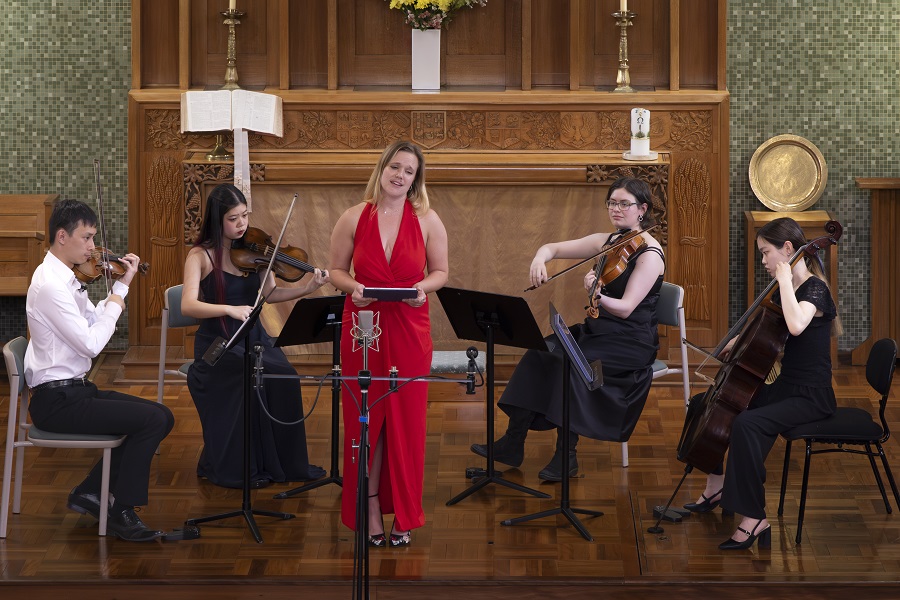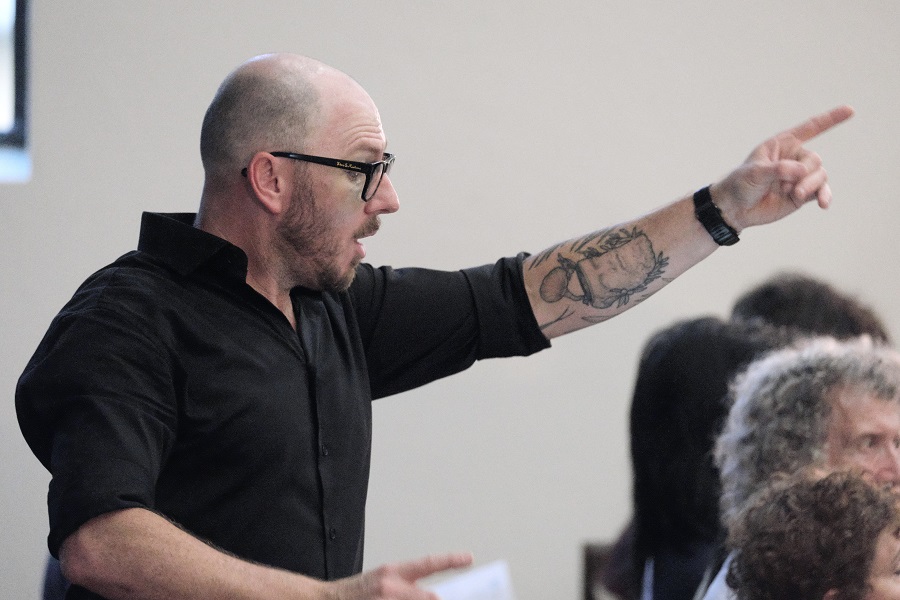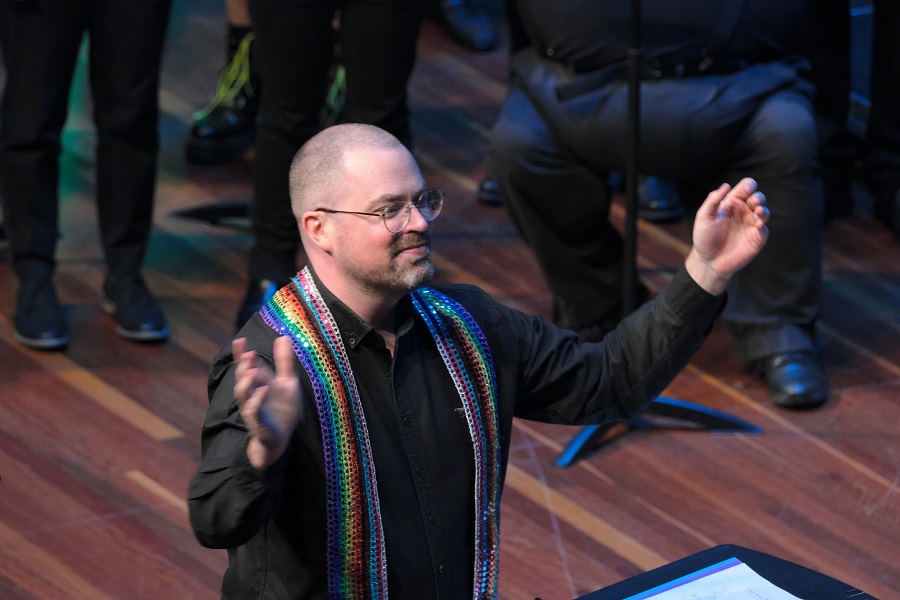
J S Bach said: “Music is an agreeable harmony for the honour of God and the permissible delights of the soul.” In an interview with contemporary Estonian composer Arvo Pärt, Icelandic pop star Björk said: “I like your music very, very much because you give space to the listener. He can go inside and live there.”
And so it was in this concert of works, primarily by Bach and Pärt. The ACO, augmented by the 26-voice Estonian Philharmonic Chamber Choir, gave a performance of sublime, spacious beauty and glorious majesty.
Unusually, the concert began with Pärt’s meditative and reflective “Da pacem Domine”, written in memory of the victims of the Madrid train bombing in March, 2004. In very dim lighting, the choir stood in front of the orchestra, with the orchestra’s director Richard Tognetti conducting the whole ensemble, sans violin. The orchestra’s quite understated accompaniment allowed the superbly balanced voices to float effortlessly through Llewellyn Hall, creating a profound sense of calm.
Then, without a break, the orchestra began playing Bach’s motet, “Komm, Jesu, Komm”, while the choir dispersed into two antiphonal choirs, mounted on risers at the rear of the orchestra. This is a difficult work to sing and generally the performance was successful, although there were times when Tognetti’s conducting was imprecise, leaving the choirs with an occasional uncertain entry.
This was also the case in the outer movements especially of Bach’s “Singet dem Herrn ein neues Lied” (“Sing unto the Lord a new song”).
Not so, though, in the orchestral offerings of this concert such as Pärt’s “Summa” (or summation or total), an orchestral setting of the Credo, and Australian composer Peter Sculthorpe’s “Djilili”, based on an Aboriginal chant from Arnhem Land. The ACO, with only the occasional subtlest of adjustments from Tognetti, gave superbly evocative and reflective performances of both.
A piece suggested by the choir was “In Paradisum” by a little-known (in Australia) Ukrainian-born Estonian composer Galina Grigorjeva, born in 1962. Like Pärt’s compositions, “In Paradisum”, it brings a sense of spiritual calm and peace. Such was the performance, the audience was able just to absorb the beauty and serenity of the music.
The final offering was Pärt’s “Berliner Messe”, written in 1990. He had emigrated from the faithless, Soviet-ruled Estonia, first to Vienna, and then to Berlin in 1981. There he was able to practise his deep faith unabated. Written very much in his so-called tintinnabuli style (playing on the harmonics created when the clapper strikes a bell), this work was given a performance that, in the words of the program notes, ranged “from the dramatic to the hypnotic, the intense to the serene”. At its conclusion, the mood was as it was at the beginning of the concert; there was a sense of meditation and reflection, with Tognetti holding the ensemble and the audience in a lengthy silence.
This, indeed, was a performance of music that delighted the soul, a place where the listener could go inside and live.
Who can be trusted?
In a world of spin and confusion, there’s never been a more important time to support independent journalism in Canberra.
If you trust our work online and want to enforce the power of independent voices, I invite you to make a small contribution.
Every dollar of support is invested back into our journalism to help keep citynews.com.au strong and free.
Thank you,
Ian Meikle, editor




Leave a Reply